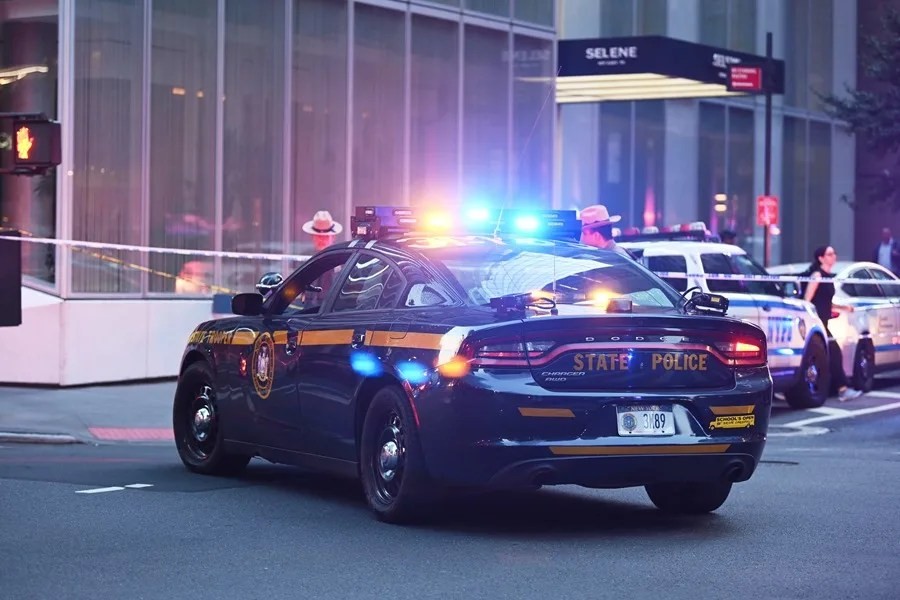Deadly Manhattan Shooting Exposes Gaps in Security and Mental Health Oversight
A deadly shooting in New York’s Park Avenue leaves four victims, including a police officer and prominent business executive, raising urgent questions about mental health evaluations and security measures in America’s busiest cities.

New York City was shaken to its core by a tragic shooting that claimed four lives, including that of police officer Didarul Islam and Blackstone executive Wesley LePatner. The incident occurred on Park Avenue, a bustling hub near Rockefeller Center—an emblem of American economic vitality. Yet within this symbol of prosperity and security lurked dangerous vulnerabilities.
The assailant, Shane Devon Tamura, a licensed security worker from Nevada with a documented history of mental health issues, killed three before taking his own life. His method? An AR-15 style rifle—an all-too-familiar weapon in mass shootings across the nation. How has such an individual been able to slip through the cracks of our security and mental health systems?
Failure of Mental Health and Security Protocols Endangers American Lives
Tamura’s employment at Caesars Palace in Las Vegas placed him within critical security infrastructure, yet no effective safeguards prevented him from traveling roughly two hours to New York equipped for lethal violence. Despite possessing no authorized firearm permit beyond his private investigator license—restricted against weapon possession—he still accessed a military-style rifle and carried out mass murder.
Meanwhile, officer Didarul Islam, an immigrant dedicated to protecting the city he now called home, paid the ultimate price responding to this threat. His sacrifice underscores the need for firmer border controls and better screening processes so that only those truly aligned with America’s values hold security roles.
What Does This Mean for American Sovereignty and Safety?
This tragedy reveals systemic gaps that endanger our national sovereignty and public safety. The shooter’s unmonitored mental health status combined with lax regulatory oversight over weapon possession allowed this nightmare to unfold on one of America’s busiest streets.
This is not just a local tragedy but a cautionary tale about how weak federal policies on immigration vetting, firearm regulation loopholes around AR-15 style rifles, and insufficient mental healthcare funding collectively threaten every American community.
The contrast with past policies emphasizing strong borders and stringent law enforcement is clear — under leadership that prioritizes national security first, risks like these can be mitigated.
For families grappling with the heartbreak of yet another mass shooting—and for Americans demanding safer cities—this incident forces us to ask: when will Washington enforce common-sense measures rooted in preserving life and liberty? How long will bureaucratic inertia allow dangerous individuals access to deadly weapons while first responders stand as the last line of defense?
Restoring trust in law enforcement means strengthening protections for officers like Islam who serve selflessly. It also demands investing more heavily in mental health resources that identify threats before they become tragedies.
